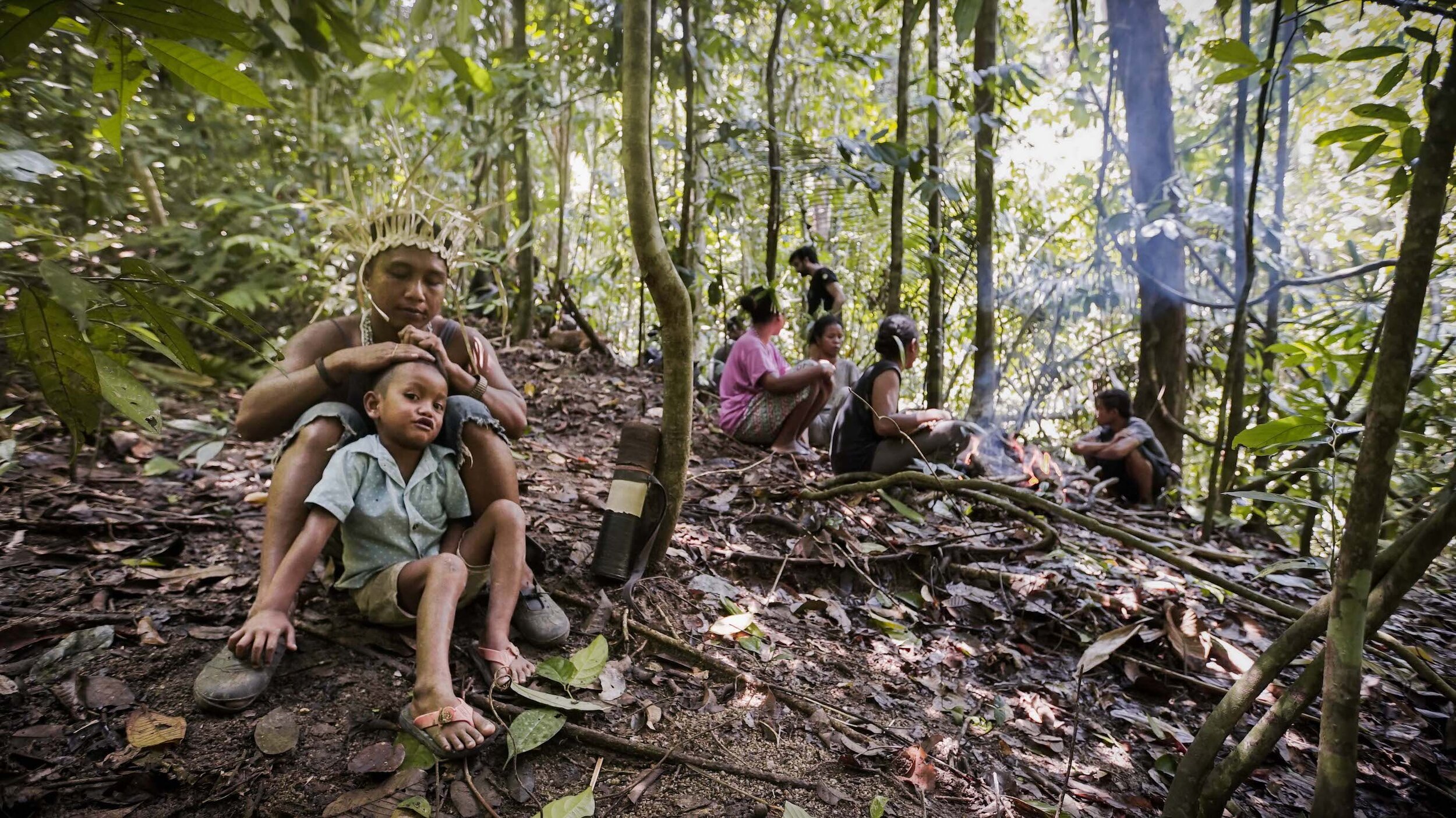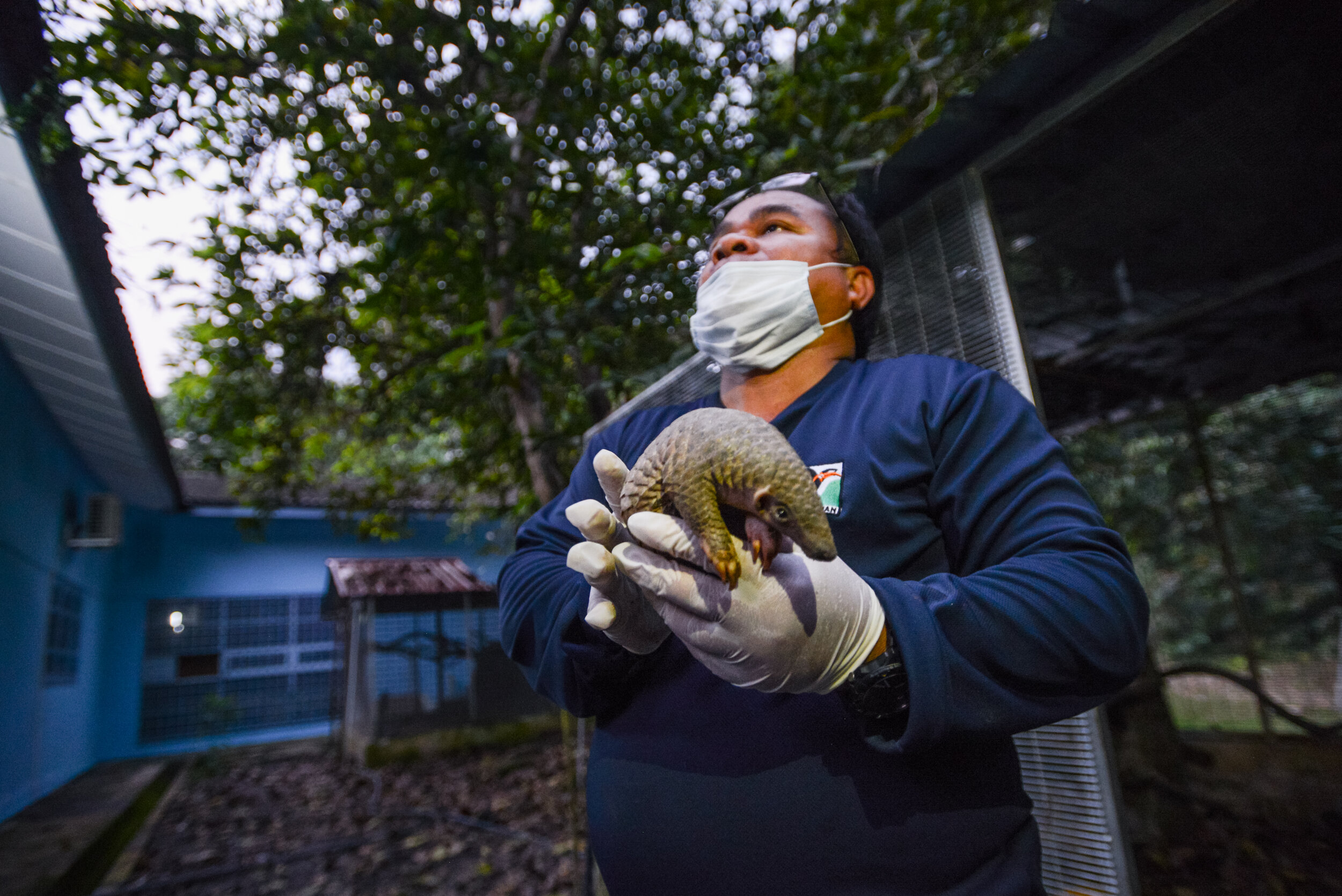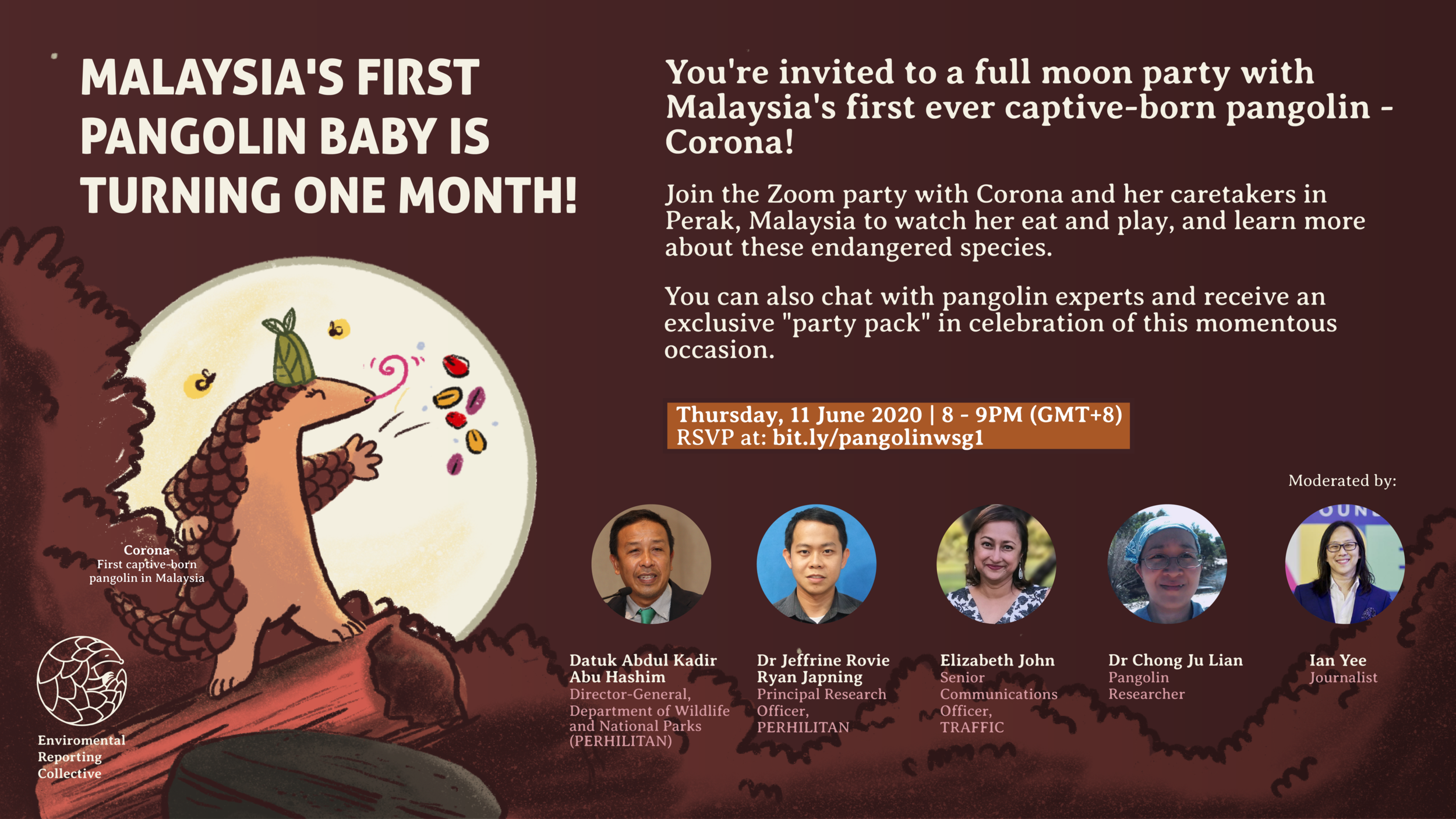Pangolin scales are not essential to Traditional Chinese Medicine, say experts
China has removed pangolin scales from its list of approved TCM ingredients in its 2020 TCM pharmacopoeia, but they remain included in officially approved TCM recipes. Tough law enforcement needs to be met with comprehensive national efforts to change consumer behaviour, in order to protect critically endangered pangolins.
Illegal pangolin scales being sold at a traditional Chinese medicine shop in China. Photo by: Karen Zhang and Xu Jiaming.
By Claire Anthony
Most traditional Chinese medicines do not contain animal products.
Those that do can often be replaced by alternative herbs and minerals that have similar medicinal outcomes.
China has removed pangolin scales from its list of approved TCM ingredients in its 2020 TCM pharmacopoeia, but they remain included in officially approved TCM recipes.
Tough law enforcement needs to be met with comprehensive national efforts to change consumer behaviour, in order to protect critically endangered pangolins.
Pangolin scales are no longer needed in traditional Chinese medicine (TCM), as TCM doctrines offer many herbal substitutes, says Dr Kong Why Hong, a practitioner in Malaysia.
“There are alternatives to using pangolin scales – pigs trotters, for example, have been shown to have a similar healing effect on the body,” he said. He also mentioned that the use of pangolin scales has become widespread only over the past century, rather than it being an ancient practice.
TCM doctrines prescribe pangolin scales for a variety of treatments, including to improve lactation and reduce swelling. This has led to a huge demand for the scales in China, where TCM is widely practised, which in turn has led to widespread poaching and trafficking of pangolins from range countries in Asia and Africa.
Dr Kong added that Malaysian law prohibits the trade of pangolins and its derivatives, and hence he has never used them in his TCM practice.
Dr Kong was speaking at an online discussion titled “Traditional Chinese Medicine and the demand for endangered wildlife”. The discussion included journalists Xu Jiaming and Karen Zhang, as well as Chris Hamley from the Environmental Investigation Agency (EIA). The discussion was moderated by R.AGE editor Ian Yee, and was attended by around 80 members of the public.
Watch the full discussion:
Jiaming, who went undercover to report on the pangolin trade last year said there are active pangolin smuggling routes running from Vietnam to China, and that in Myanmar, pangolins were being traded openly.
Fellow journalist Karen shared that massive seizures of pangolin scales continue to make headlines, citing seizures amounting to more than 24 tonnes in Singapore last year – the equivalent of around 38,000 pangolins.
She shared that as Asian pangolin species became critically endangered around 10 years ago, smugglers started sourcing pangolin scales from Africa, smuggling them through trade routes that include Hong Kong, Singapore and South Korea, among others.
“In West Africa, local people would eat pangolins as bushmeat traditionally and discarded the pangolin scales” she said, “but when smugglers came to source the scales, it drove up the value.”
In a move that excited conservationists and could have disrupted this demand, China removed raw pangolin scales from its list of approved ingredients in its 2020 TCM pharmacopeia. However, Chris shared that TCM recipes within the pharmacopoeia still listed pangolin scales as ingredients.
“This government endorsement legitimises use of globally threatened species and stimulates demand for them,” he said.
“To end the trade, the government needs to close the domestic market completely,” he said. ”That would include removing medicines containing pangolin scales from government insurance schemes and destroying national stockpiles.”
China has a legal market for pangolin scales, sourced from an opaque national stockpile system. All the experts agreed that stopping the trade requires not just tighter laws and stronger enforcement, but a change in consumer behaviour.
“It seems to me that there are large pharmaceutical companies that are making a lot of profit from legally selling scales in China,” said Karen, “but I am optimistic as I also see that the younger generation are more aware of the need to protect wildlife species.”
The discussion was the last of a four-part interactive discussion series presented by the Environmental Reporting Collective. To read about the previous sessions, click the links below:
Episode 1: Celebrating Malaysia’s first captive-born pangolin
Episode 2: Can pangolin farming curb its illegal trade?
Episode 3: Indigenous people and wildlife conservation
If you want to replicate or would like to support our work, get in touch by email.
Indigenous hunting and wildlife conservation are not in conflict, say experts
Modern wildlife laws in Malaysia seek to protect species by criminalising hunting, which is a way of life for many indigenous communities. Whilst this seems like a clash between conservation of animals and of culture, experts explained that Orang Asli – the collective name for Peninsular Malaysia’s indigenous people – only hunt for their immediate needs.
By: Claire Anthony
Indigenous peoples hunt mostly for subsistence, which hasn’t disturbed the ecological balance of the forest for generations.
Laws that criminalise hunting make it difficult for indigenous people to participate in the economy, as they are not able to earn an income on what they hunt.
A better consultation process with indigenous people is needed before wildlife and forestry laws affecting them are imposed.
Sustainable lifestyles could curb the demand for forest products that threaten wildlife, indigenous people and their land.
Modern wildlife laws in Malaysia seek to protect species by criminalising hunting, which is a way of life for many indigenous communities. Whilst this seems like a clash between conservation of animals and of culture, community organiser Dayoung Shaniera Seliman, of the Semai tribe, explained that Orang Asli – the collective name for Peninsular Malaysia’s indigenous people – only hunt for their immediate needs.
“We still hunt as a source of food, using traditional methods and just take what we need. It’s outsiders who come in with guns and poisons and take as much as they can," she said, adding that her people have taken care of the jungles for generations without creating imbalance.
Dayoung was speaking at an online discussion titled “Indigenous peoples and wildlife conservation in Malaysia”. Dayoung was joined by Noraini Nasaruddin of the Department of Wildlife and National Parks Peninsular Malaysia (Perhilitan), Universiti Malaya anthropologist Kamal Solhaimi Fadzil, and R.AGE journalist Elroi Yee. Around 200 global members of the public joined the session which was moderated by R.AGE editor Ian Yee.
Watch the full discussion:
Noraini shared that Peninsular Malaysia’s conservation law, the Wildlife Conservation Act 2010, has a clause that permits the Orang Asli to hunt 10 species of wildlife. In addition, they are allowed to forage for other non-timber forest products lIke honey or rattan.
However, the Act stipulates that wildlife hunted by the Orang Asli can only be for their own consumption, and cannot be sold or traded. “We did get feedback from Orang Asli groups when we came up with this list,” she said, “but it’s not possible to reach everyone.”
Kamal, who has worked with and studied indigenous communities for over 15 years, believes that this fails to appreciate the complexities of their lifestyle. “They hunt for food, for subsistence, yes, but also for income generation,” he said. “They are part of the economy and use money for things like phone credit or petrol – just like we do.”
He suggested that there was a need to create a better method of consultation with indigenous people, on matters of forestry and wildlife that will directly affect them. Whilst Noraini shared that only 44 of Perhilitan’s 6,479 arrests for wildlife crimes between 2015 and 2019 involved Orang Asli offenders, Kamal gave examples of how people are still negatively affected by law enforcement.
“We met a man who was caught by the fisheries department for illegally catching fish for a third party. They didn’t arrest him but they confiscated the fish. Not only did he not earn anything that day; he lost money, as he had borrowed to get the job done."
Group participants suggested that communities could be driven to do this kind of work when their land is no longer providing what they need. Today, indigenous communities must compete for land and forest resources with large, powerful plantations – and even disgruntled translocated elephants.
"The Federal and State governments really need to consider how land is being used and allocated. Not coming up with a solution for this is like genocide," said Kamal, if the Orang Asli were to be forced from their land or to abandon their lifestyle in favour of development.
Download the experts’ presentation slides here.
Elroi also reminded participants that it's not just a job for the authorities.
"Our lifestyles affect what happens in the forest – consumer demand is driving the continued extraction of forest products, so why don't we curb that demand and live more sustainably?"
The Zoom discussion was the third of a four-part interactive wildlife series presented by the Environmental Reporting Collective. To join the final session, click the register button below:
2 July: Traditional Chinese Medicine and the demand for endangered wildlife Register
Commercial pangolin farming is not viable, say conservation experts
With all eight pangolin species threatened with extinction, it has been suggested that farming pangolins could displace the wild trade and bring their numbers back from the edge. However, conservationists and scientists agree that pangolins are not suitable for commercial farming.
By: Claire Anthony
Out of 17 criteria that should be met when considering whether an animal is suitable to be farmed for conservation purposes, pangolins meet only six.
Pangolins are very difficult to breed and raise in captivity. Conservation NGO Save Vietnam’s Wildlife (SVW) reports that 15 out of 20 pangolins born at their centre died soon after birth.
Farms could be used by smugglers to launder illegally poached pangolins, as it is not possible to differentiate farmed pangolins from wild ones.
With all eight pangolin species threatened with extinction, it has been suggested that farming pangolins could displace the wild trade and bring their numbers back from the edge. However, conservationists and scientists agree that pangolins are not suitable for commercial farming.
"To take care of pangolins, including adequate husbandry, is very expensive,” said pangolin researcher and Universiti Malaysia Terengganu lecturer Dr Chong Ju Lian. “At the end of the day, it wouldn't be a good venture for potential investors.”
Dr Chong cited an example from Singapore Zoo that put the annual cost of properly caring for an adult pangolin at around USD7,000 a year.
Cost is only one factor, out of many that disqualify pangolins from “supply-side conservation” – meaning conservation methods that use farmed animals and plants to displace the illegal trade.
Sharing from her past research conducted in collaboration with an international team of scientists, Dr Chong explained that pangolins only meet six out of 17 criteria for supply-side conservation.
Dr Chong was speaking at an online discussion titled ‘Can pangolin farming curb its illegal trade?’ She was joined by SVW head keeper Truong Tran, multimedia journalist Trang Bui, and over 60 members of the public, including pangolin conservationists from around the world. The session was moderated by R.AGE editor Ian Yee.
Watch the full discussion:
Truong explained that at SVW, they have rescued over 1,500 pangolins from the illegal trade, and the animals have been found to be very sensitive creatures, and expensive to take care of.
"They eat ants and termites," he said, "and they eat so much that it costs us a lot just to feed them." Pangolins are known to eat around 300g of ants and termites a day.
Truong added that 20 pangolins were born in captivity at SVW, but 15 of them died shortly after, for reasons including disease and prematurity. Of the five which survived, all were released back into the wild with their mothers.
Based on her experience reporting on wildlife trafficking, Trang believes that pangolin farming would make it easier for smugglers to operate under the guise of legal farms.
"This is what happened to tigers in Vietnam. There was a big legal tiger farm but it turned out that they were working with illegal smugglers,” she said, adding that none of the experts she spoke to recommend pangolin farming.
Both Dr Chong and Truong noted that pangolin farms would likely source the animals from the wild, and could also stimulate increased consumer demand for pangolin products.
However, the experts agreed that breeding programmes could be used for conservation purposes, helping to replenish the wild population.
The Zoom discussion was the second of a four-part interactive wildlife series presented by the Environmental Reporting Collective. To join upcoming sessions, click the register button below:
25 June: Indigenous Peoples and wildlife conservation in Malaysia Register
2 July: Traditional Chinese Medicine and the demand for endangered wildlife Register
Malaysia’s first captive-born pangolin meets the public
Over 200 people turned out for a “Zoom party” to celebrate the baby pangolin’s birth, including wildlife experts, journalists and members of the public.
Cosmas Ngau, head of the Malaysian wildlife department’s breeding programme cradles Corona, the first captive-born pangolin in Malaysia.
Photo by: Puah Sze Ning
By: Claire Anthony
Malaysia celebrates the birth of its first captive-born pangolin with a “Zoom party”
Wildlife law enforcement operations in Malaysia have continued throughout the Covid-19 crisis
Over 200 pangolins screened for viruses in Malaysia since 2011, none found to carry coronavirus
Experts and authorities urge the public to help protect wildlife by actively reporting wildlife crimes
The illegal trade of its scales and meat has made the pangolin the world’s most trafficked mammal, but in a huge leap for Malaysian researchers, a Wildlife Department (Perhilitan) breeding program has resulted in the first baby pangolin to be born in captivity here.
Over 200 people turned out for a “Zoom party” (using the popular video conferencing app) to celebrate the baby pangolin’s birth, including wildlife experts, journalists and members of the public. They gathered to see an exclusive live video feed of the month-old baby, named “Corona”, and to discuss how to protect the critically endangered animals.
The session included a live video-link to Corona’s home at Perhilitan’s Sungkai Conservation Centre, where the head of the breeding program, Cosmas Ngau, answered questions about her care to an international audience.
Screenshot of the “Zoom party” to celebrate Malaysia’s first captive-born pangolin, attended by over 200 participants.
Despite the many challenges of raising pangolins in captivity, Cosmas and his team have worked hard to ensure Corona and her mother Tara stay healthy, including creating a series of ant farms to ensure there is a sufficient supply of the insects for the pair to eat.
Cosmas told excited viewers that he felt like “a proud grandfather” when Corona was born, after being so invested in the process, from mating to pregnancy scans and now raising the baby pangolin herself. Researchers and conservationists hope to gain new insights into the lives of pangolins by observing this special moment for Corona and her mother Tara.
Joining the conversation were Perhilitan Director-General Datuk Abdul Kadir Abu Hashim and Principal Research Officer Dr Jeffrine Ryan, pangolin researcher and Universiti Malaysia Terengganu lecturer Dr Chong Ju Lian, and Traffic senior communications officer Elizabeth John.
Watch the full discussion:
"Elizabeth shared statistics that show over a 20-year period, 895,000 pangolins were seized around the world, causing three out of the four Asian pangolin species to become critically endangered – one step away from extinction.
“We are removing them from the wild at a rate that they can’t be replaced,” she said. “If demand continues like this, there simply won’t be any pangolins left.”
She also highlighted that it’s often tip-offs from the public that make it possible for authorities to make seizures of illegal animals or animal products.
Corona, Malaysia’s first captive born pangolin, clinging to the tail of her mother, Tara.
Photos by: Puah Sze Ning
"Our latest enforcement operation began in September 2019, alongside the Royal Malaysian Police and we haven't stopped since then. Even during the movement control order, our operation continued," said Datuk Kadir about his departments' efforts to protect local wildlife such as pangolins.
In Malaysia, a movement control order was imposed on March 18 to slow the spread of Covid-19, and has since been only partially lifted.
Since the Covid-19 outbreak, zoonotic diseases – those that originate from animals – have been firmly in the spotlight. Samples from pangolins seized by Chinese authorities have been analysed by researchers, and found to contain strains of coronavirus similar to Covid-19. This has led to concerns that pangolins could be a carrier of the virus.
However, research conducted by Dr Jeffrine and his team at Perhilitan, in collaboration with EcoHealth Alliance, has shown that none of the over 200 pangolins seized and studied in Malaysia since 2011 were found to have any of these coronavirus strains. The team’s findings were submitted on June 1 to a journal for publication, and are currently undergoing peer review.
However, he added that pangolins are still potential carriers of zoonotic diseases, and the pangolins found with coronavirus in China likely picked up the virus while they were in the illegal trade.
“Everyone – governments, businesses, individuals – needs to think about how our contact with wildlife is creating opportunities for diseases to spread and then prevent these opportunities as much as possible,” said Elizabeth.
The Zoom party was the first of a four-part interactive wildlife series presented by the Environmental Reporting Collective. To join upcoming sessions, click the register button below:
18 June: Can pangolin farming curb its illegal trade? Register
25 June: Indigenous peoples and wildlife conservation in Malaysia Register
2 July: Traditional Chinese Medicine and the demand for endangered wildlife Register
Meet Malaysia’s first captive-born baby pangolin
The Environmental Reporting Collective is hosting an online conversation series under the Wildlife Study Group series, focusing on pangolins.
Despite the link between coronavirus and animal pathogens, endangered wild animals such as the pangolins are still at high risk of being trafficked and smuggled.
To spark conversations in the community, improve understanding and encourage engagement with efforts to halt the illegal wildlife trade, the Environmental Reporting Collective is hosting an online conversation series under the Wildlife Study Group series, focusing on pangolins.
The series kicks off with a “full moon” party to celebrate Malaysia’s first captive-born baby pangolin. Baby ‘Corona’ will be present via video link to “meet” guests, while her caretaker will be on hand to discuss the challenges of raising these shy, highly-endangered animals in captivity.
Malaysia’s Wildlife Department (Perhilitan) director general Dato’ Kadir Abu Hashim, Perhilitan head of research Dr Jeffrine Rovie Ryan Japning, pangolin researcher Dr Chong Ju Lian, and TRAFFIC senior communications officer Elizabeth John will be on hand to join the conversation, moderated by award-winning investigative journalist Ian Yee.
This will be the first of four sessions taking place over a month, designed to encourage sharing from all participants, from wildlife experts and journalists to activists and other enthusiasts. Each session will focus on a different aspect of the illegal wildlife trade.
June 11: Full moon party with Corona the pangolin. Click here to RSVP
June 18: Can farming pangolins curb its illegal trade? Click here to RSVP
June 25: Indigenous Peoples and wildlife conservation in Malaysia Click here to RSVP
July 2: Traditional Chinese Medicine and the demand for endangered wildlife Click here to RSVP
Join the full moon party with Corona the pangolin, on Thursday, June 11 at 8pm (GMT+8).












